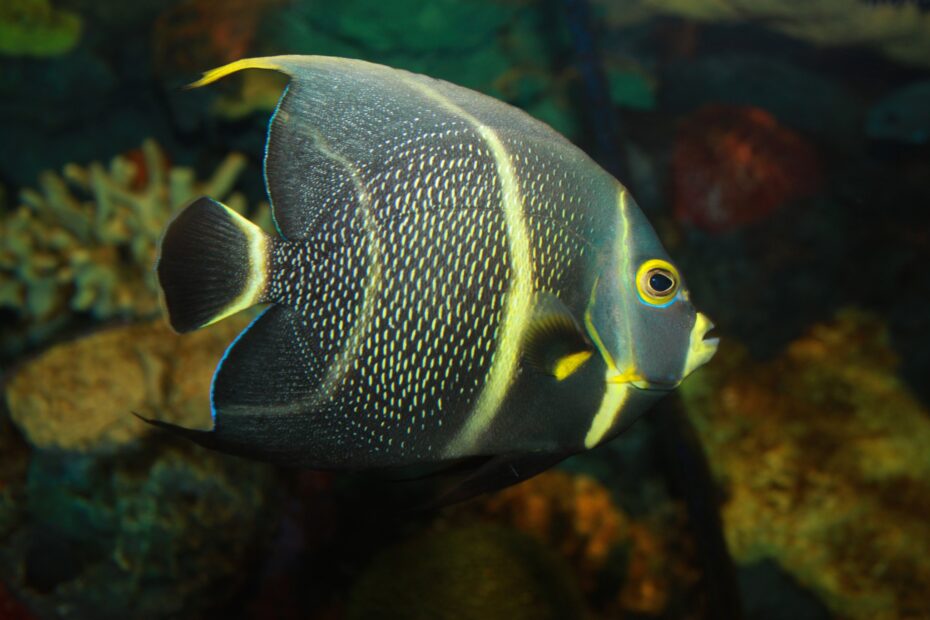The French Angelfish (Pomacanthus paru) is a popular marine species known for its captivating appearance and behavior. Native to the Western Atlantic, from Florida and the Bahamas to Brazil, they are found in reef environments and are a staple in many saltwater aquariums.
Appearance: French Angelfish have distinct coloration. Adults exhibit a deep black body with vibrant yellow edges on each scale, creating a netted appearance. Their pectoral fins are pale yellow, and their face displays a masked-like feature with a white mouth and yellow-rimmed eyes. Juveniles, on the other hand, are primarily black with three vertical yellow bands.
Habitat: These fish typically inhabit shallow reef environments and are often found in pairs, a testament to their monogamous nature.
Aquarium Care:
- Tank Size: French Angelfish can grow considerably large, up to 16 inches in the wild. Therefore, they require a spacious aquarium, with a minimum size of 180 gallons (680 liters) being recommended.
- Diet: They are omnivores with a strong inclination towards herbivory. In the wild, they feed on sponges, algae, and corals. In captivity, their diet should comprise marine-based algae, spirulina, mysis or brine shrimp, and a quality angelfish preparation. It’s crucial to provide them with a variety of foods to ensure they receive all necessary nutrients.
- Tank Mates: While they are relatively peaceful, they can show territorial behavior, especially towards conspecifics and other large angelfish. Tank mates should be chosen carefully. Generally, non-aggressive fish that won’t provoke the French Angelfish are ideal.
- Environment: Their environment should mimic a natural reef setting. Plenty of live rock formations, nooks, and hiding spots are essential. This not only offers retreats but also encourages natural grazing behavior.
- Water Parameters: Standard marine conditions are crucial – a salinity of 1.023-1.025 specific gravity, temperatures ranging between 74-78°F (23-25.5°C), and pH levels of 8.1-8.4.
- Health: French Angelfish, like many marine species, can be susceptible to common fish diseases like marine ich. Regular observation, pristine water quality, and quarantining new tank additions can help in disease prevention.
Conclusion: French Angelfish are a remarkable addition to large marine aquariums. While they demand specific care and attention, their splendid appearance and intriguing behaviors make the effort worthwhile. Their tendency to form monogamous pairs also offers aquarists a unique opportunity to observe natural fish relationships. Proper care, a balanced diet, and a suitable environment will ensure they thrive in captivity.

